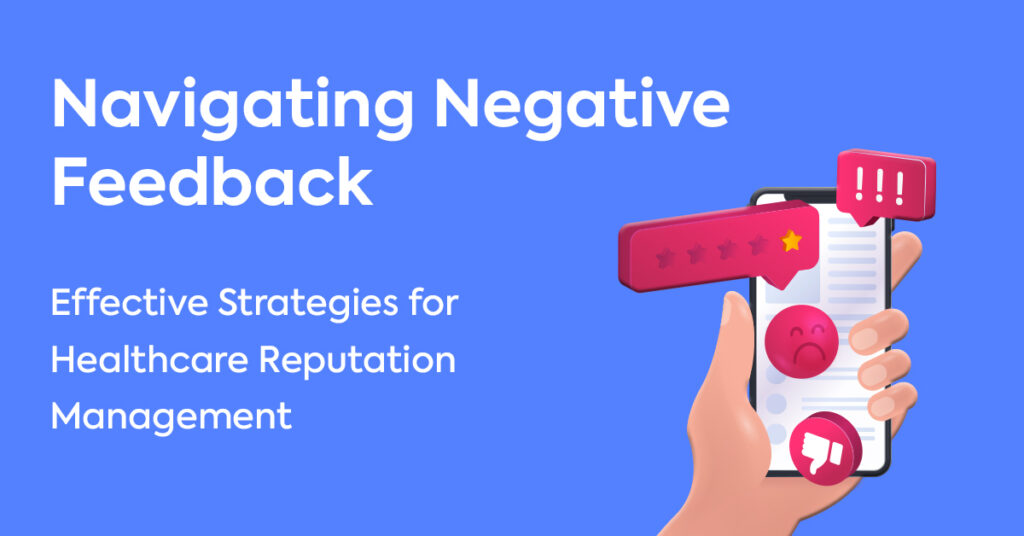Navigating Negative Feedback: Effective Strategies for Healthcare Reputation Management

Understanding the Importance of Healthcare Reputation Management
Strategies for Responding to Negative Feedback Online
Prompt and Personalized Response
Acknowledge negative feedback promptly and personally, demonstrating your commitment to addressing patient concerns and fostering open communication. Responding promptly also shows that you value patient feedback and take concerns seriously.
Express Empathy and Understanding
Approach negative feedback with empathy and understanding, acknowledging the patient's experience and emotions. Express genuine concern for their well-being and reassure them that their feedback is being taken seriously.
Take the Conversation Offline
Whenever possible, invite the patient to continue the conversation offline to address their concerns privately and confidentially. Provide contact information or encourage them to reach out directly to discuss their experience further.
Offer Solutions and Resolution
Be proactive in offering solutions or resolution to address the patient's concerns. Whether it's scheduling a follow-up appointment, offering a refund, or addressing a misunderstanding, demonstrate your commitment to resolving the issue and improving the patient experience.
Maintain Professionalism and Transparency
Maintain a professional and courteous tone in all interactions, refraining from engaging in heated or defensive exchanges. Transparency is key—be honest, transparent, and forthcoming in your responses, acknowledging any mistakes or shortcomings and outlining steps for improvement.
Learn and Adapt
Use negative feedback as an opportunity for learning and growth. Identify trends or recurring issues in patient feedback and use insights to inform improvements to your practice, policies, and patient experience.
